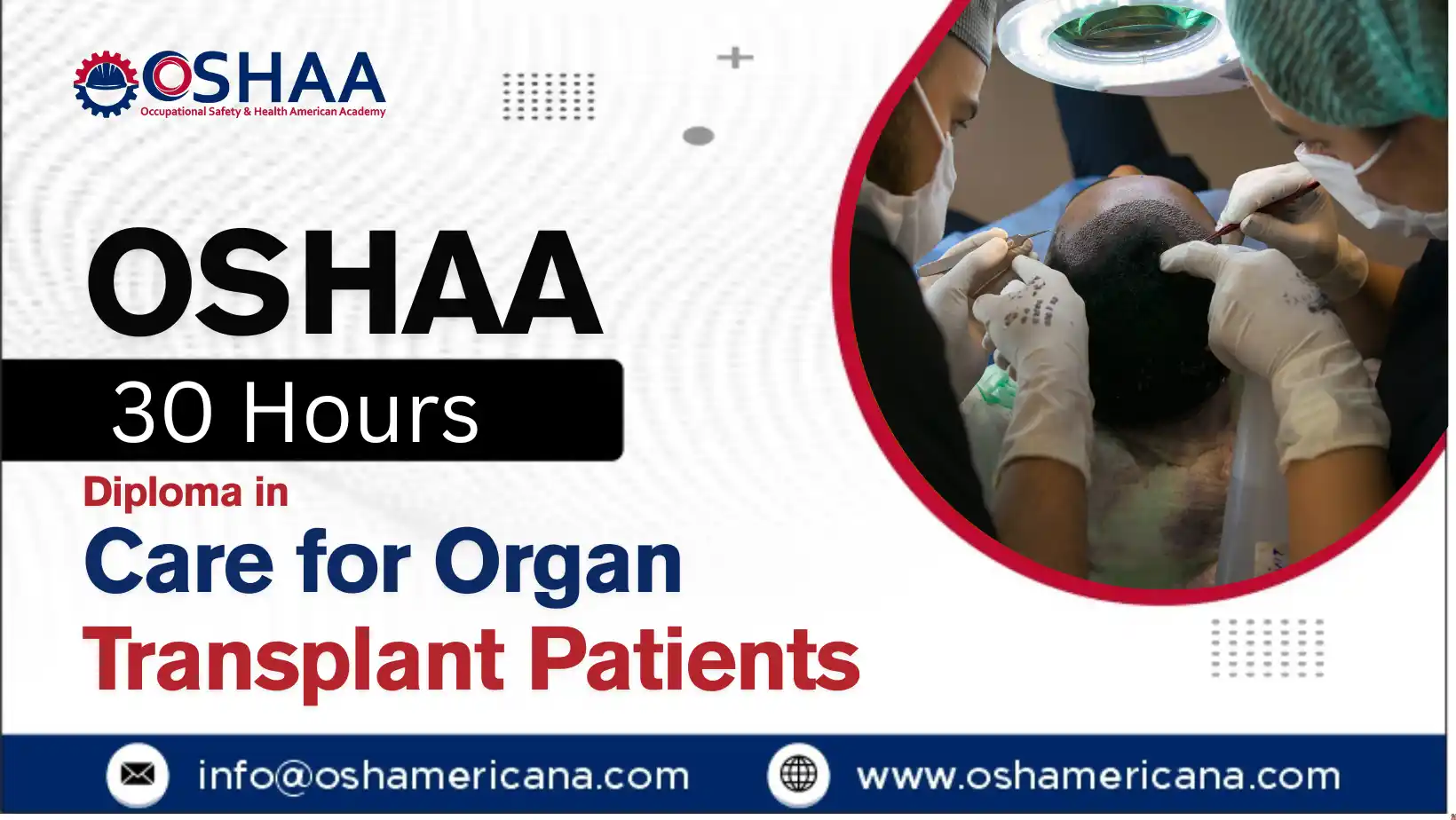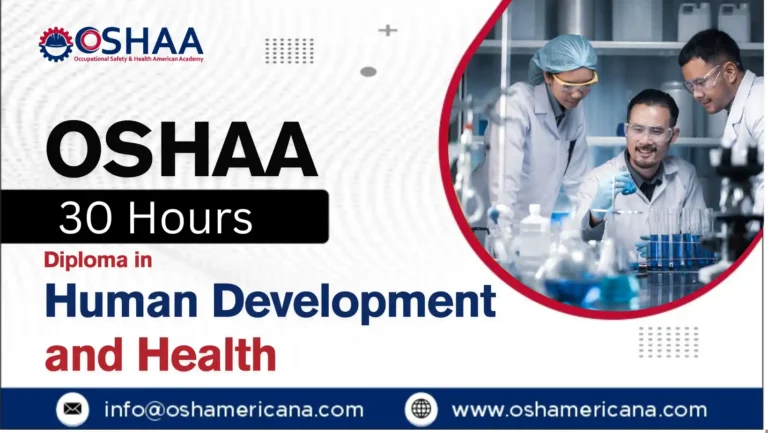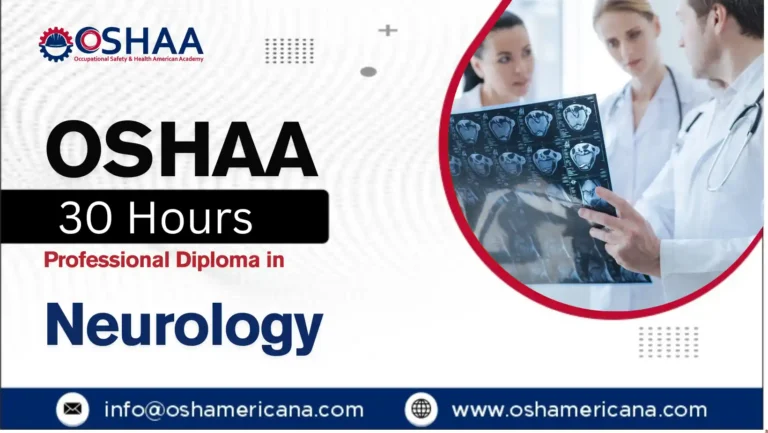The OSHAA 30-Hours Diploma in Care for Organ Transplant Patients is a professionally structured qualification designed to provide in-depth knowledge and practical understanding of post-transplant care. This programme offers a comprehensive approach to the management and support of individuals who have undergone organ transplantation, preparing participants to uphold high standards of patient care in clinical and home settings.
The OSHAA 30-Hours Diploma in Care for Organ Transplant Patients spans essential topics including immunosuppressive therapy management, infection control protocols, nutritional guidance, psychosocial support, and the identification of signs of organ rejection. Participants will gain insights into patient education, medication adherence, long-term care planning, and the interdisciplinary nature of transplant aftercare.
Completing this diploma enables participants to contribute effectively to the multi-disciplinary care teams responsible for transplant patient recovery. With a clear focus on safety, quality, and empathy, this qualification helps bridge the gap between medical procedures and holistic aftercare.
The OSHAA 30-Hours Diploma in Care for Organ Transplant Patients is more than a certification — it is a vital investment in patient-centred care. As the demand for specialised healthcare professionals continues to rise, this qualification offers participants the opportunity to make a meaningful impact in the lives of those who have undergone organ transplantation. With a focus on safety, empathy, and excellence, the diploma stands as a benchmark for professional development in transplant aftercare.
OSHAA 30-Hours Diploma in Care for Organ Transplant Patients
Study Units
Learning Outcomes
Introduction to Organ Transplantation and Post-Operative Care (3 hours)
- Understand the basic principles and procedures involved in organ transplantation
- Identify the roles of healthcare professionals in the transplant process
- Describe the immediate post-operative care requirements for transplant patients
- Recognise common complications following transplant surgery
Immunosuppressive Therapy: Medications and Management (4 hours)
- Explain the purpose and function of immunosuppressive medications
- Identify common types of immunosuppressive drugs and their side effects
- Demonstrate knowledge of medication schedules and adherence strategies
- Recognise the risks associated with immunosuppression and ways to mitigate them
Infection Prevention and Control in Transplant Patients (5 hours)
- Understand why transplant patients are at high risk for infection
- Apply standard and specialised infection control measures in care settings
- Identify early signs of infection in transplant patients
- Demonstrate safe handling and hygiene practices to protect vulnerable individuals
Monitoring and Managing Signs of Organ Rejection (3 hours)
- Recognise clinical signs and symptoms of acute and chronic organ rejection
- Understand diagnostic methods used to detect organ rejection
- Outline interventions used to manage and treat rejection episodes
- Support patients and families during rejection-related care
Nutritional Needs and Lifestyle Adaptations Post-Transplant (3 hours)
- Identify dietary guidelines specific to post-transplant recovery
- Understand the role of nutrition in maintaining organ health
- Provide lifestyle recommendations to support long-term wellness
- Assist patients in developing sustainable dietary and activity plans
Psychosocial Support and Patient Communication (6 hours)
- Understand the emotional and psychological challenges post-transplant patients face
- Demonstrate effective communication strategies with patients and families
- Support patients coping with anxiety, depression, or adjustment difficulties
- Apply person-centred care principles in emotional support scenarios
Ethical and Legal Considerations in Organ Transplant Care (3 hours)
- Understand key ethical principles in organ donation and transplantation
- Recognise the legal responsibilities of care providers in transplant settings
- Respect patient autonomy and confidentiality
- Navigate consent and decision-making processes with sensitivity
Long-Term Care Planning and Community Support Services (3 hours)
- Develop individualised care plans for long-term transplant patient support
- Identify available community and healthcare resources for post-transplant care
- Facilitate access to ongoing support services for patients and families
- Promote self-management and follow-up care compliance
Course Benefits: OSHAA 30-Hours Diploma in Care for Organ Transplant Patients
- Equips participants with specialised knowledge in post-transplant care, enhancing their competence in a highly sensitive healthcare field
- Strengthens understanding of immunosuppressive therapies, infection control, and organ rejection management
- Develops practical skills essential for supporting transplant recipients through both clinical and home-based care
- Enhances communication abilities, particularly in addressing the psychosocial and emotional needs of transplant patients and their families
- Improves confidence in handling ethical, legal, and professional responsibilities related to organ transplantation
- Enables participants to contribute more effectively within multi-disciplinary healthcare teams
- Supports career advancement by providing a recognised qualification aligned with OSHAA standards
- Offers practical insights through case-based learning, making knowledge directly applicable to real-world care scenarios
- Encourages a person-centred approach to long-term transplant care and community reintegration
- Provides flexible learning suited to the schedules of current healthcare professionals seeking to upskill
The OSHAA 30-Hours Diploma in Care for Organ Transplant Patients is designed for participants who are currently working in, or aspiring to work in, healthcare settings where specialised care for transplant recipients is required. It is particularly suitable for:
- Healthcare assistants and support workers involved in patient recovery and rehabilitation
- Nurses and care staff seeking to enhance their expertise in transplant aftercare
- Allied health professionals aiming to broaden their understanding of organ transplantation support
- Individuals working in community care, home health services, or long-term care facilities
- Those interested in gaining a recognised qualification to support career development in specialised clinical care
This course is ideal for participants committed to delivering safe, compassionate, and informed care to patients recovering from organ transplants.







